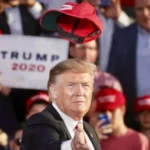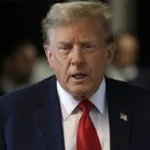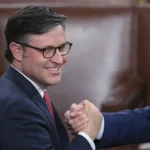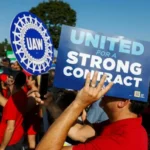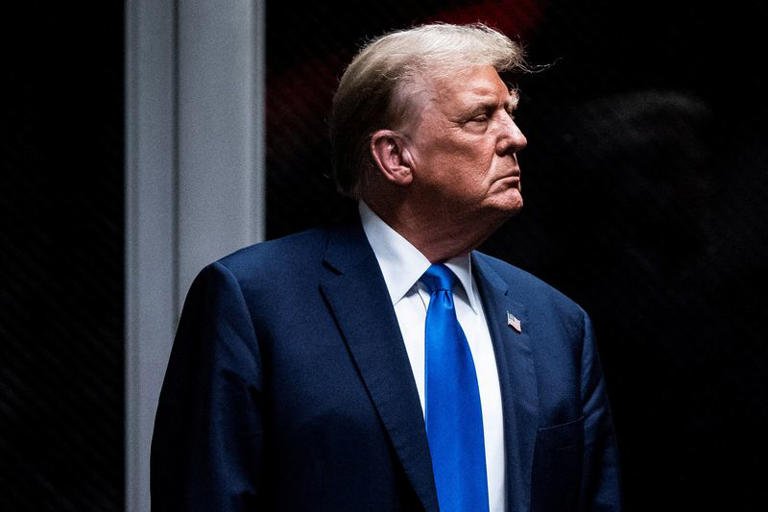At Donald Trump’s criminal trial, there is no dispute about a central underlying fact: the month before the 2016 presidential election, his personal lawyer and fixer paid a porn star for her silence about an alleged sexual encounter with Trump.
Legal experts say the outcome of the first-ever trial of a former U.S. president hinges on Trump’s intent.
Can prosecutors prove that he knew that fixer Michael Cohen’s $130,000 hush money payment to adult film star Stormy Daniels was meant to sway the election and that Trump fudged records to cover it up?
Or can the defense persuade jurors the payment was a personal expense meant to spare Trump and his family embarrassment?
Trump, the Republican candidate in the Nov. 5 presidential election, denies any such encounter with Daniels, whose real name is Stephanie Clifford. He has pleaded not guilty to 34 felony counts of falsifying business records.

The 12-member jury was selected on Thursday. Opening statements could take place on Monday if prosecutors and defense lawyers finish choosing six alternate jurors on Friday.
Prosecutors in Manhattan District Attorney Alvin Bragg’s office say Trump falsely recorded his 2017 reimbursement of Cohen as legal expenses in his New York-based real estate company’s books to cover up the hush money payment, which they call an illegal campaign contribution.
Falsifying a business record is a misdemeanor in New York. To get a jury to convict him on felony charges, prosecutors must prove that Trump knew Cohen’s payment just before the 2016 election was illegal and that the former president was trying to conceal it.

“The timing of it makes the inference pretty clear, but they have to prove this beyond a reasonable doubt,” said Rebecca Roiphe, a New York Law School professor and former Manhattan assistant district attorney.
Trump’s lawyers and a spokesperson for Bragg did not respond to requests for comment on their trial strategies.
Trump’s lawyers have said in court papers that his 2017 payments to Cohen were, in fact, monthly legal retainers. They also said accounts of extramarital affairs could have harmed the reputations of Trump and his family regardless of his candidacy, meaning the Daniels payment was not a campaign contribution.
“I was paying a lawyer and marked it down as a legal expense,” Trump told reporters on Tuesday outside the courtroom. “That’s exactly what it was. And you get indicted over that?”
He has said the case, like the three other indictments he faces, amounts to interference in the 2024 election and was brought to thwart his campaign for president.
‘CATCH AND KILL’
Cohen pleaded guilty in 2018 to violating campaign finance laws by paying Daniels, which he testified Trump directed him to do.
Trump has branded Cohen a serial liar, and his lawyers have argued Cohen is falsely implicating his former boss to promote his podcasts and books.
Cohen has admitted lying to Congress in 2017 about a Moscow real estate project, though he says he did so to protect Trump when he was still working for him.
While testifying at a recent civil trial against Trump, Cohen said he lied in 2018 by pleading guilty to tax fraud – a crime he now says he did not commit.
“Michael Cohen’s credibility has been shot quite a bit, and the defense will have a good opportunity to attack his testimony,” said Tanisha Palvia, a former prosecutor with the Manhattan District Attorney’s Office and a lawyer at Moore & Van Allen.
To counteract the defense narrative that the Daniels payoff was purely personal, prosecutors are expected to portray it as part of a broader “catch and kill” scheme to bury negative stories about Trump before the election.
Prosecutors say that included a $150,000 hush money payment Cohen arranged from tabloid publisher American Media Inc to another woman who said she had an affair with Trump, Playboy model Karen McDougal, which Trump also denies. They could seek to corroborate Cohen’s testimony with other witnesses, such as former AMI chief executive David Pecker.
“You try to deprive the defense of any other alternate, innocent explanation,” said James Roberts, counsel at Schlam, Stone & Dolan and a former prosecutor with the Manhattan District Attorney’s Office.
Trump has suggested he may testify in the case.
Taking the stand in his own defense is risky as it opens him up to cross-examination by prosecutors. But Adam Kaufmann, a former Manhattan assistant district attorney, said it may be Trump’s best bet at convincing jurors the payment was personal.
“To really give it legs, Trump would need to put it in front of the jury and testify,” said Kaufmann, a partner at Lewis Baach Kaufmann Middlemiss.

